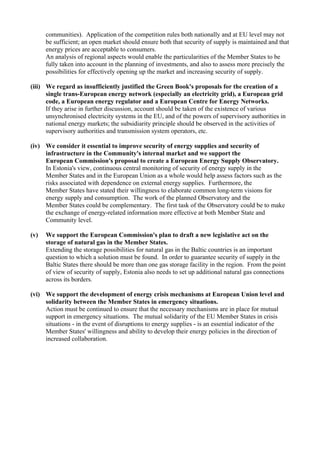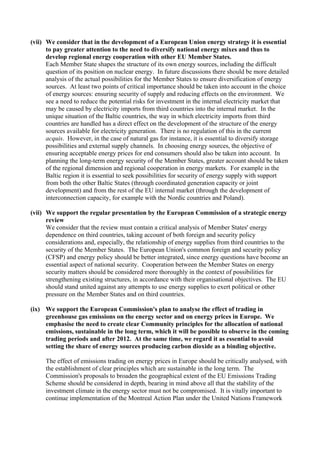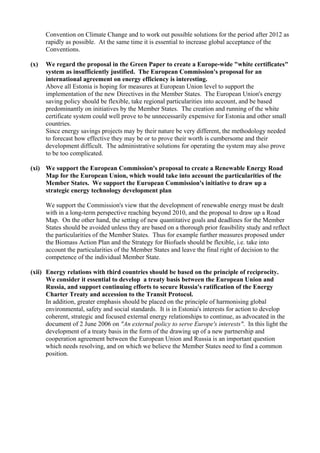Estonia supports the European Commission's Green Paper on a European energy strategy with some reservations. While it agrees with most proposals, it believes some require further explanation or would not achieve desired results. Estonia emphasizes the need to: (1) maintain member state sovereignty over energy sources and supply, (2) consider the needs of peripheral states, and (3) strengthen EU cooperation and solidarity. It also stresses the importance of energy security, supply diversification, and developing cross-border infrastructure to integrate markets while ending the isolation of Baltic states.




